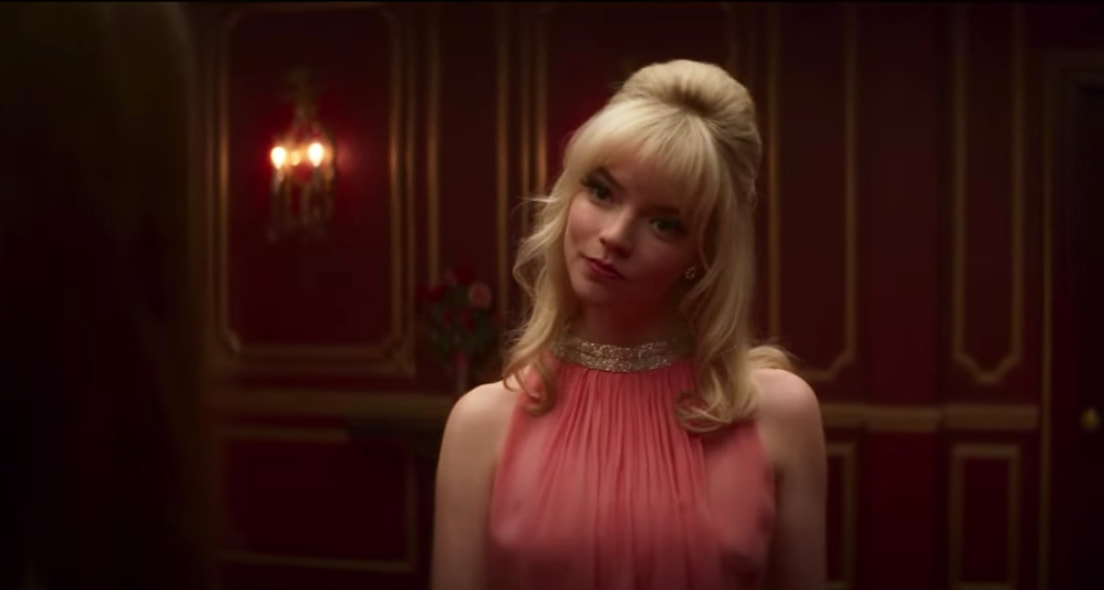At the end of the day, any job working on a film is incredibly hard and it’s impossible to judge a performance without context and the whole experience surrounding it. It’s also very easy to point out negative elements of this film and its forces rather than its successes. However, it was first quite apparent that McKenzie gives an indifferent and expectable performance as the main protagonist, Eloise. Eloise is a first-year at the London College of Fashion, yet she’s from a rural and modest upbringing which immediately contrasts against her pretentious, posh classmates, who were all quite exaggerated in their performances. When I wanted to hear more intuition from Eloise, more relatability, I was slowly disappointed with an old chestnut. At times, this film felt like a Disney Channel movie in its believability, but McKenzie’s performance and the rest of the students’ performances are not to blame, as it’s clear the writing may have lacked the depth that was needed a bit more of.
I will add that I was blown away by the special effects and artistic choices made by Wright and the rest of those who worked on this film during the first half. Whether it was being pulled under an infinite rip current of Eloise’s bedsheets, or Anya-Taylor Joy’s striking beauty being reflected within a kaleidoscope of mirrors in a retro London speakeasy, all of which did a great job of pulling my interests into this film and were done extremely well! Bravo!
Comparing this film to Quentin Tarantino’s Once Upon a Time in Hollywood might seem lazy, but the quiet comparisons between the two recently fictionalized period pieces of the ’60s were unignorable. It’s undeniable that OUAITH’s core success lies in its time period. Not much is truly said throughout the film, but its story is relayed very successfully through its distinct visuals and commitment to Hollywood in 1969. Last Night in Soho also has such a compound, layered plot of a coming-of-age story with bullies, self-exploration, and family trauma, a horror film with relentless and faceless ghosts, a murder mystery of magical dreamscape proportions, and a historical fiction film of nightlife in mid-century London all combined. With Last Night in Soho’s diverging and overlapping segments competing for attention, this visually appealing “Golden Age”, quickly gets lost within the rest of the film’s elements. At first, this film’s setting is obvious, fun, and immersive, but it quickly gets downplayed which staggers the film and becomes a side note to the story, rather than being crucial to the film itself as expected. We see glimpses of each category but not enough substantial emotions produced by each as they compete with one another so the grounding for viewers to feel connected to the characters, story, or time period wasn’t entirely there and unfortunately, the message of the film was lost.
In addition to the converging themes, our expectations diverge within this film, but not in a surprising or effective way but rather, a confusing one. At first, Eloise’s issues with her mom’s death are at the forefront of her journey and actions, and the genetic line of mental illness that Eloise has also clearly been the victim of leads viewers to believe that there can be some sort of redemption, connection to her mother, healing, or even an explanation for the film’s outlandish events because of this theme. Rather, this theme almost feels like a red herring. It is quickly forgotten and undermined when it could very successfully be employed as a critical plotline. Eloise comes from a supportive, open-minded home that seems to prioritize her mental health, (especially after her mom’s struggle and subsequent passing), and acknowledges the visions that she and her mother once had. However, Eloise never copes, recognizes, reflects, or searches for help when her predisposition to mental illness at first glance seems to be at fault for her visions. Nonetheless, even her family doesn’t help when recognizable signs are apparent in Eloise. It’s not even so that this disillusionment or denial is a theme or aspect of her own personal mental health journey, it’s seems just a stretch that can be made given Eloise’s background. Her own struggle with visions and her mother’s death isn’t mentioned again until the end in which it’s sappy and cliche to do so. Granted, Eloise did have quite a bit going on with faceless ghosts chasing her at all times so maybe she wasn’t able to actively think about her mental state. But I do think that it was definitely an aspect I was intrigued by at first, kept in mind throughout, and was also lost but had so much potential to be used correctly!
Although I don’t recommend this film, it’s entirely possible that I personally missed something crucial to the plot. I mean, Wright has established so many amazing elements going for this film! I was so hopeful and excited, and on paper, all of these elements sound incredibly thrilling. Sadly, the ultimate lesson I learned from Last Night in Soho is that you can’t employ everything that you want at once as it oversaturates your whole piece, and thus, compromises any important values you’d intend to achieve.
Rating: ★★/★★★★★

 RSS Feed
RSS Feed
